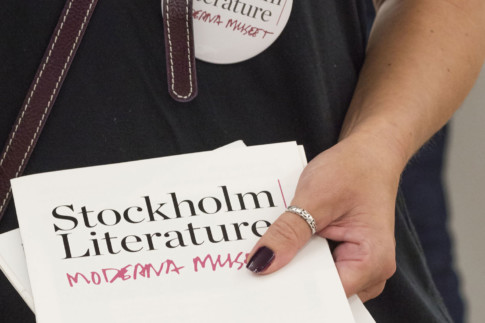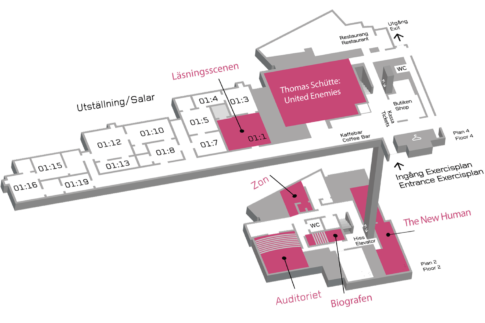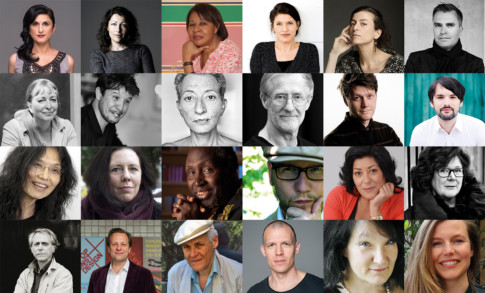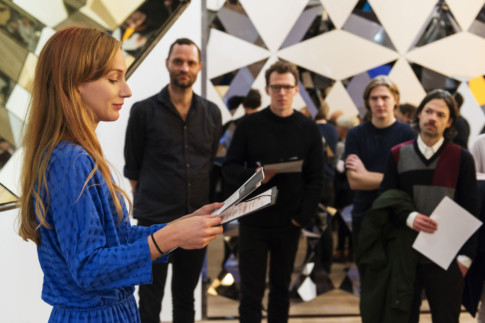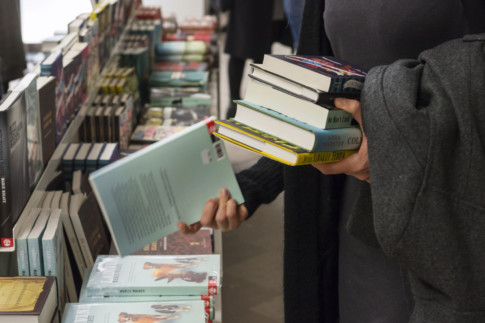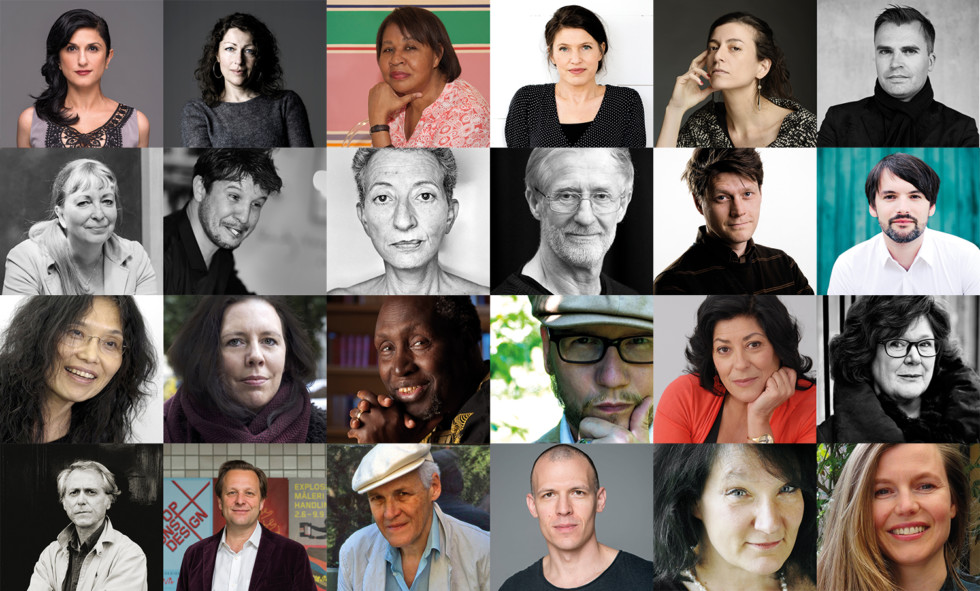
Dorit Rabinyan, photo: Ilya Melnikov. Elisabeth Åsbrink, photo: Eva Tedesjö. Jamaica Kincaid, photo: Russell MacMasters. Kristina Sandberg, photo: Maria Annas. Samanta Schweblin, photo: Alejandra Lopez. Jerker Virdborg, photo: Sofia Runarsdotter. Henrika Ringbom, photo: Niklas Sandström. Adel Abdessemed, photo: Gilles Bensimon. Hélène Cixous, photo: Olivier Roller. Mats Ek, photo: Sören Vilks. Daniel Sjölin, photo: Magnus Liam Karlsson. Saša Stanišić, photo: Katja Samann. Hiromi Itō, photo: Junji Yamashita. Martina Montelius, photo: Elnaz Baghlanian. Ngũgĩ wa Thiong’o, photo: Daniel Anderson. Sjón, photo: Hördur Sveinson. Almudena Grandes, photo: Itziar Guzmán-Tusquets Editores. Majgull Axelsson, photo: Cato Lein. Don DeLillo, photo: Chris van Houts. Daniel Birnbaum, photo: Åsa Lundén/Moderna Museet. Carl-Henning Wijkmark, photo: Ewa Rudling. Hannes Meidal, photo: Roger Stenberg. Monika Fagerholm, photo: Ida Pimenoff. Astrid Svangren, photo: Lena Mattsson.
Writers & artists
Ngũgĩ wa Thiong’o
Samanta Schweblin & Jerker Virdborg
Saša Stanišić & Daniel Sjölin
Dorit Rabinyan & Elisabeth Åsbrink
Almudena Grandes & Majgull Axelsson
Don DeLillo & Daniel Birnbaum
Carl-Henning Wijkmark & Hannes Meidal
Hélène Cixous & Adel Abdessemed
Jamaica Kincaid & Kristina Sandberg
Hiromi Itō & Martina Montelius
Monika Fagerholm & Astrid Svangren
Ngũgĩ wa Thiong’o & Sjón
Hélène Cixous & Mats Ek
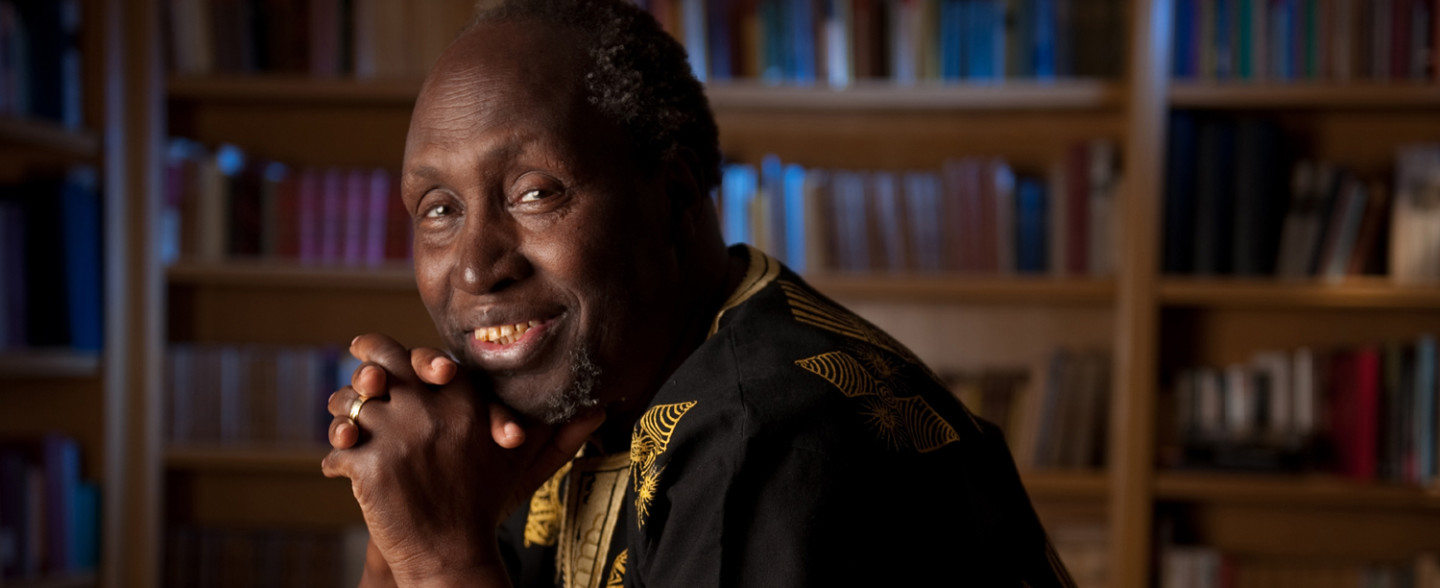
Ngũgĩ wa Thiong’o
Reclaiming your language
Although an estimated 2,000 languages are spoken on the African continent, very few literary works are written in any of them. Instead, African authors write in the languages of the colonisers. Ngũgĩ wa Thiong’o wants the continent to reclaim its own languages. His speech opens the Festival on Saturday.
Ngũgĩ wa Thiong’o (born 1938 in Kenya) is considered one of the great African writers. As a child, he experienced the Mau-Mau Uprising, in which the Kikuyu from which he descended, headed the fight against the British colonisers. The rebellion was brutally quelled. When he began his literary career in the early 1960s, all his writing concerned Mau Mau. His major international breakthrough came with the novel A Grain of Wheat. In the 1970s, Ngũgĩ studied in the UK, where he discovered the writing of Frantz Fanon and became a Marxist. He gave up his Christian faith, changed his name to Ngũgĩ wa Thiong’o, and began performing political theatre, but was soon arrested. During his prison sentence, Ngũgĩ wa Thiong’o wrote the first novel ever in Kikuyu, Devil on the Cross, on prison toilet paper. Today, he writes only in Kikuyu. Ngũgĩ ‘s latest novel, Dreams in a Time of War: A Childhood Memoir, has been translated into Swedish by Jan Risarp. This autumn sees the publication of his latest book, The Upright Revolution: Or Why Humans Walk Upright.
The Auditorium SAT at 11.15–12 (Eng) SUN at 14.15–15 (Eng)
Book signing SAT at 12.10 SUN at 15.10
Readings SUN at 11.30–11.50 (Ki/Sw)
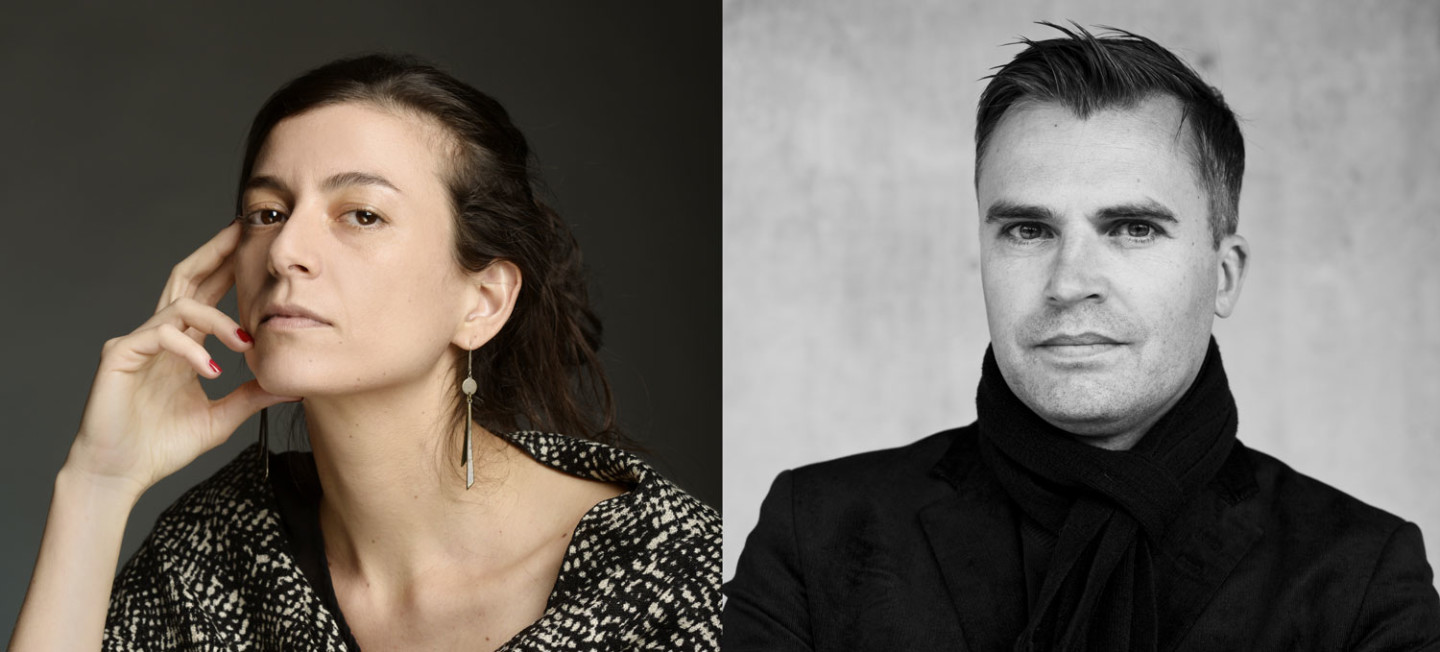
Samanta Schweblin & Jerker Virdborg
Unsafety Distance
How can we twist reality by subtle means, so that humans and humanity become a matter of distance, uncertainty and tension? A discussion about the potential of fiction.
Samanta Schweblin was born 1978 in Buenos Aires, Argentina, and now lives in Berlin. In 2010, Granta magazine listed her among the best young writers in Spanish, and her books have been translated to many languages. Her literary debut in 2002 was with a collection of short stories, El núcleo del disturbio. This autumn sees the publication of her first novel, Distancia de rescate, a short tale about the worst nightmare a parent can have, when the distance to rescue a child grows too big. The story is set in a small village, but the whole country of Argentina seems to pulsate between the lines. Distancia de rescate is translated into Swedish by Lina Wolff.
Jerker Virdborg was born in 1971 in Lindome, and now lives in Stockholm. Since his debut with a volume of short stories, Landhöjning två centimeter per natt, in 2001, he has written several acclaimed novels, most recently Skyddsrummet Luxgatan (2015). In Virdborg’s intense, lucid universe, the power of fiction grates against foreign elements in reality. His novels undermine received notions and confront mankind with the responsibility for its actions, for itself, its fellow humans and society. He is also a scriptwriter and frequently participates in literary debates. Virdborg has co-authored a series of adventure novels under the pen name of Michael Mortimer.
In association with Albert Bonniers förlag.
The Auditorium SAT at 12.15–13 (Eng)
Book signing SAT at 13.10
Readings SUN at 12.30–12.50 Schweblin (Sp/Sw) SAT at 15–15.20 Virdborg (Sw)
Zone SAT at 15–15.20 Schweblin (Sp)
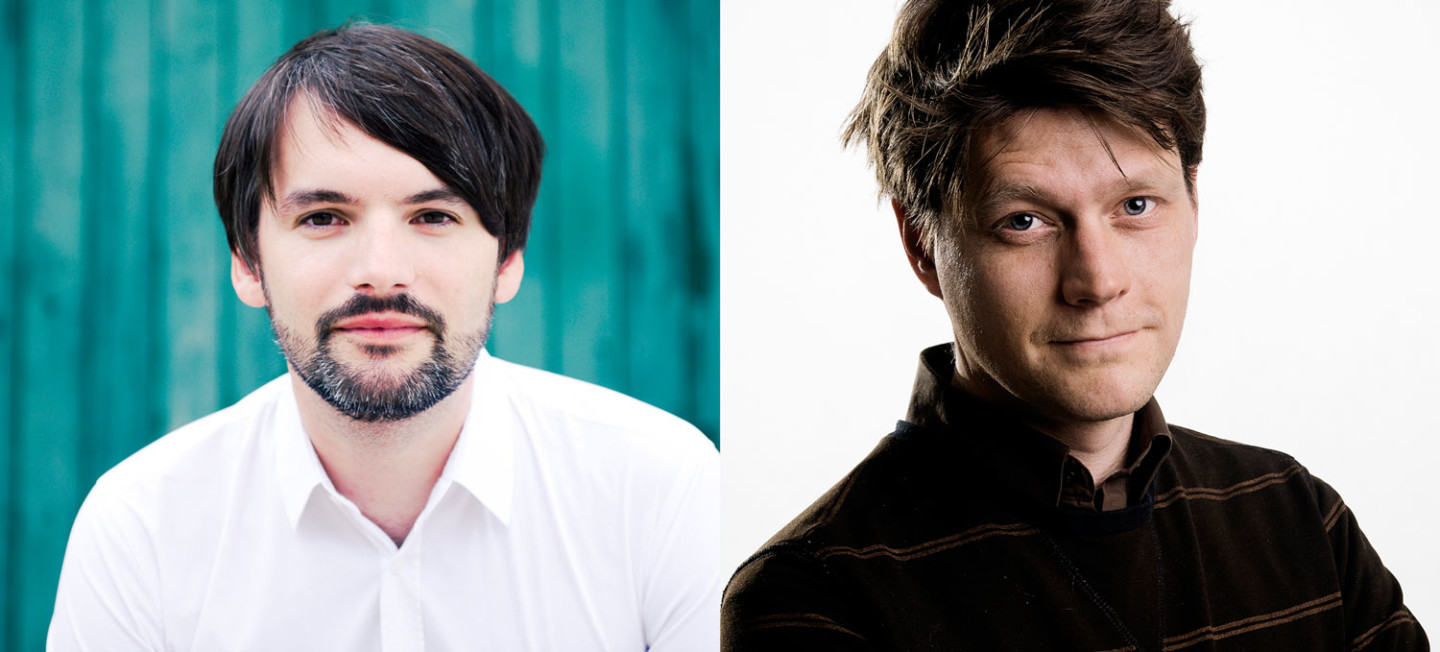
Saša Stanišić & Daniel Sjölin
We are shaken, we have no right to demand anything
How do we portray the dismal, beautiful, hypocritical, life-saving and fictive Europe? With local history archives, or with a recklessly chauffeured VW Golf in a lake with its own ferryman? A discussion about inventing language for an unruly Us that comprises everyone and nobody.
Saša Stanišić was born in 1978 in Višegrad in Bosnia-Hercegovina, and lives in Germany since 1992. His novels How the Soldier Repairs the Gramophone and Before the Feast focus on a small village. Humour and darkness, the living and the dead, poetic subtlety and nefarious caricature – all in the service of his idiosyncratic protagonists, who defy being reduced to examples of anything but themselves. Stanišić has received numerous awards for his grasp of how history is traditionally portrayed in the European novel, and how this can be developed. Before the Feast has been translated into Swedish by Christine Bredenkamp.
Daniel Sjölin made his debut in 2002 with a novel, Oron bror, followed by Personliga pronomen two years later. In 2007, he published Världens sista roman (The World’s Last Novel), followed by a long silence. He stopped writing while hosting Babel, a literary programme, on Swedish Television. Six years later, he co-authored a series of adventure stories under the pseudonym of Michael Mortimer, and published the acclaimed short story Alla vill bara gå hem.
In association with Weyler förlag and Goethe-Institut Schweden.
The Auditorium SAT at 13.15–14 (Eng)
Book signing SAT at 14.10
Readings SUN at 14–14.20 Stanišić (Bo/Sw)
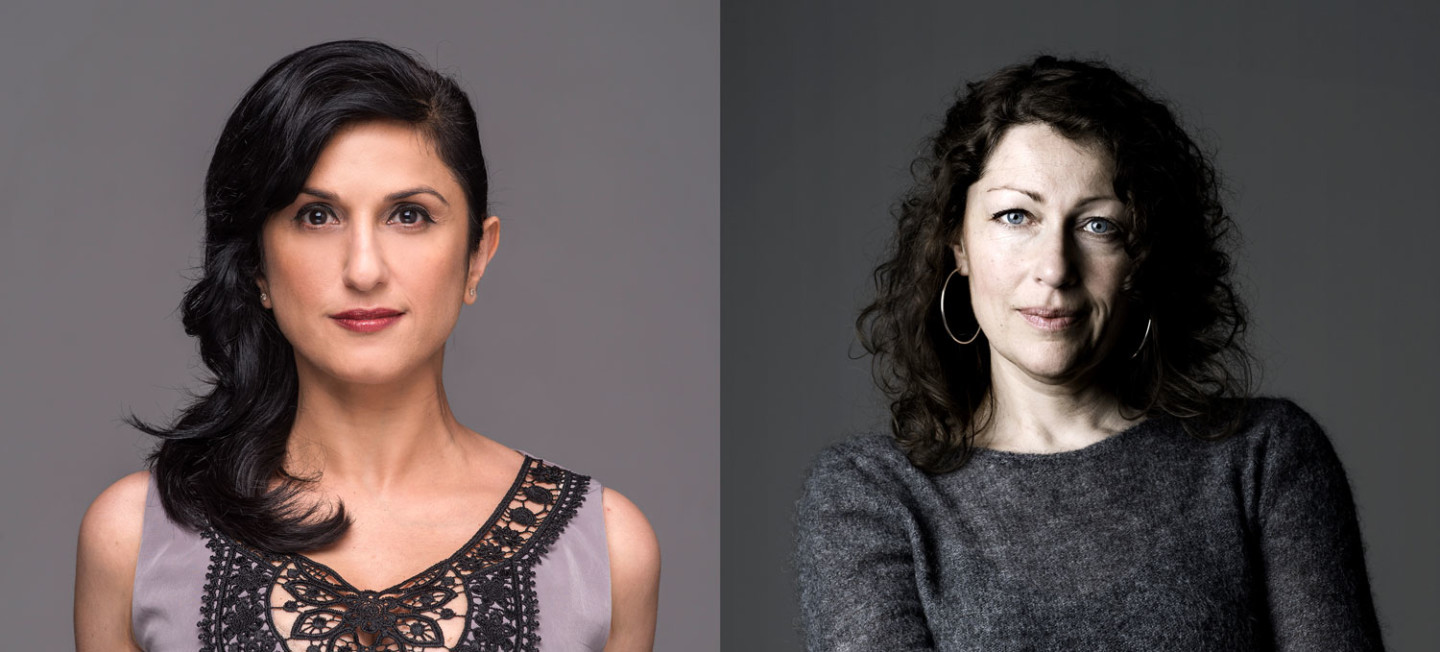
Dorit Rabinyan & Elisabeth Åsbrink
Can literature tear down walls?
Literature confronts us with memories and gives us access to our own – and other people’s – history. What is the political potential of literature?
Dorit Rabinyan (born 1972) is of Iranian-Jewish descent, and grew up in a suburb of Tel Aviv. Her literary debut came in 1995 with Persian Brides, portraying a Jewish family in the early 20th century. Our Weddings, also a family chronicle with elements of magic realism, has previously been translated into Swedish by Rose-Marie Nielsen. Rabinyan rose to international fame for her novel Borderlife (Gader Haya in Hebrew) in 2014. This is a love story between an Israeli woman and a Palestinian man. The novel became a bestseller in Israel when the Israeli parliament wanted to ban it from schools. It is currently available in some ten languages.
Elisabeth Åsbrink is a Swedish journalist and writer (born 1965), acclaimed for her literary essays that combine careful research with personal stories. Her first published book was Smärtpunkten, and she was awarded the August prize in 2011 for Och i Wienerwald står träden kvar. Based on a unique correspondence, it tells the story of how the Swedish welfare state in the 1940s welcomed Jewish refugee children. Central topics in her oeuvre are memory and forgetting – especially the specifically Swedish variety of forgetting. Her latest book is 1947, a portrayal of one year in the world, with events that continue to resonate well into our own time.
The Auditorium SAT at 14.15–15 (Eng)
Book signing SAT at 15.10
Readings SAT at 12.30–12.50 Åsbrink (Sw) SAT at 13–13.20 Rabinyan (Eng)
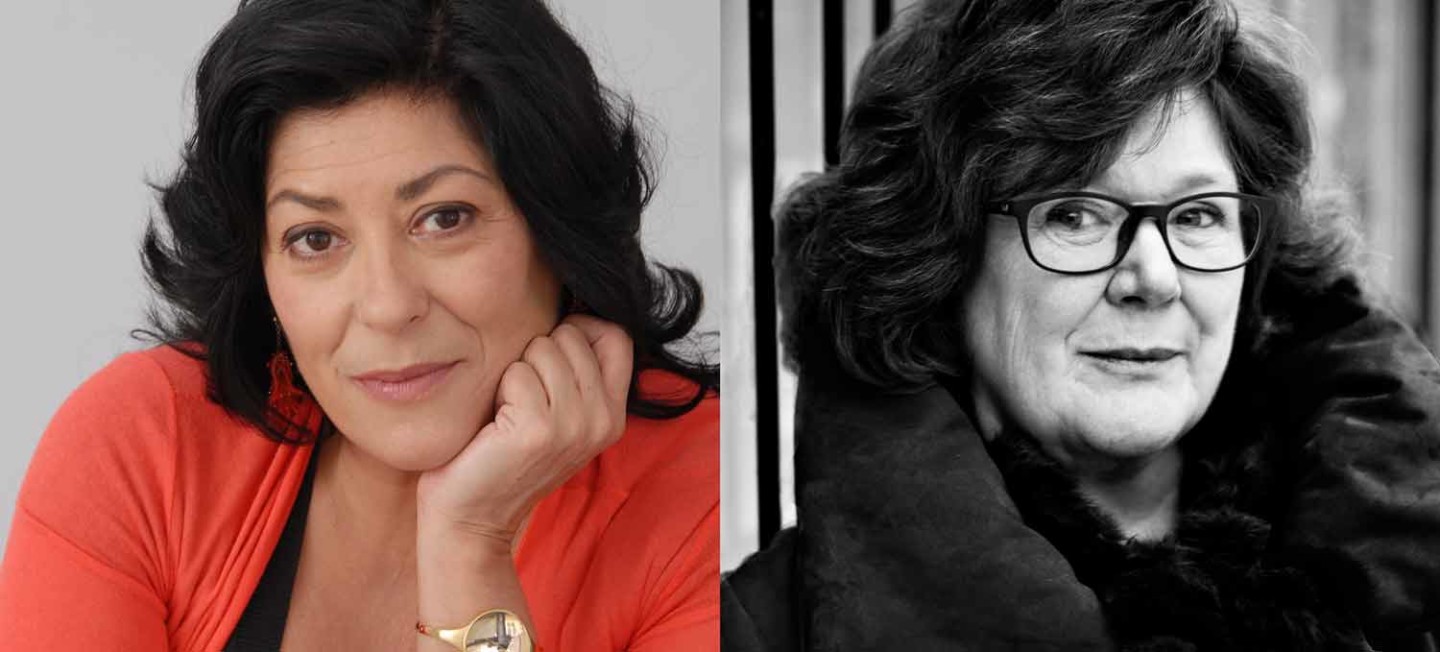
Almudena Grandes & Majgull Axelsson
When will the wounds heal?
What happens to a society that seeks to bury past crimes and conflicts? What enables some stories to break through the silence surrounding the unbearable, making it tolerable for many to hear?
Almudena Grandes (born 1960) has reached a large readership in her native Spain with her novels about life during the dark Franco period, when the civil war was an open wound that must not be mentioned. With her outspokenness, she is a crucial voice in Spanish social debate. El lector de Julio Verne, published in Swedish in 2014, is about the silent, bloody guerrilla war fought long after the civil war was officially over – but also about how literature can give understanding and inspire courage. Her novel Las tres bodas de Manolita, which is published in Swedish this autumn, also tells the story of the civilian resistance against Franco. It was translated by Yvonne Blank and Marika Gedin.
Majgull Axelsson (born 1947) is one of Sweden’s most popular authors. She began as a journalist, and her first books were about the plight of third-world children, including her widely-acknowledged documentary novel Rosario är död, about street children in Manila. Her debut as a fiction writer came in 1994, with Långt borta från Nifelheim, and she was awarded the August prize in 1997 for Aprilhäxan. As an author, she seeks out areas of conflict, pain and guilt, which society would prefer to keep hidden. Her latest novel, Jag heter inte Miriam, tells the history of the Roma in Sweden and Europe through the fate of its main character. In 2015, she was awarded the Ivar Lo Prize.
In association with Norstedts.
The Auditorium SAT at 15.15–16 (Sp/Sw)
Book signing SAT at 16.10
Readings SAR at 14–14.20 Grandes (Sp/Sw) SAT at 12.30–12.50 Axelsson (Sw)
Zone SAT at 12–12.20 Grandes (Sp)
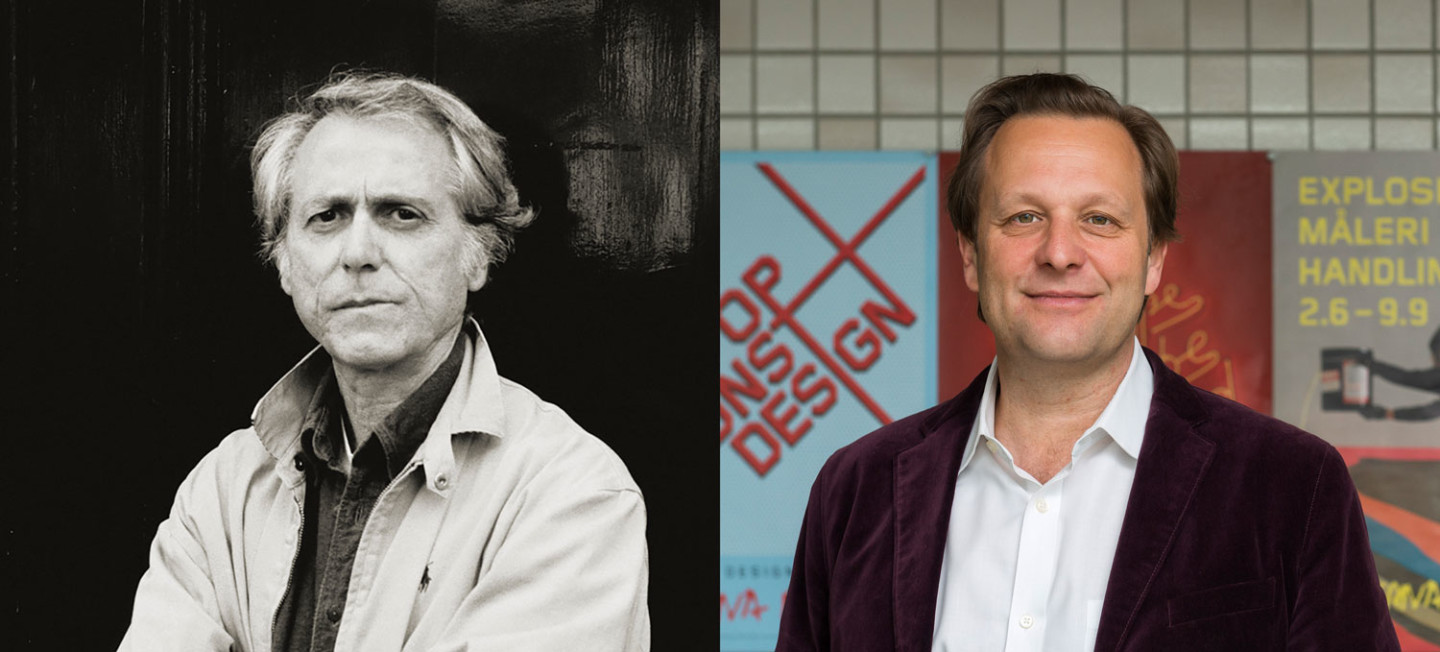
Don DeLillo & Daniel Birnbaum
Art as a catalyst
Don DeLillo has an intimate relationship to modern art, which often plays a prominent part in his novels. His descriptions of art strike a chord that sets the mood. Here, he meets Daniel Birnbaum in a discussion on how art is a catalyst for his writing.
Don DeLillo (born 1936) is an award-winning American novelist, playwright and essayist with an incomparable eye for contemporary tendencies, who began writing about global terrorism, the digital era and information overload at an early stage. “It’s important to write against power, corporations, the state, and the whole system of consumption and of debilitating entertainments,” is how he summarises the purpose of writing. DeLillo’s major brakthrough came with his novel White Noise, about life in an American small town after an industrial accident. His novel Zero K was recently published in Swedish in a translation by Rebecca Alsberg.
Daniel Birnbaum (born 1963) is the director of Moderna Museet since autumn 2010. Between 2000 and 2010, he was principal of Städelschule in Frankfurt and director of the Portikus art gallery. Together with Isabelle Graw, he co-founded the Institut für Kunstkritik at Städelschule in 2003. He is on the editorial staff of Artforum in New York and has organised several major exhibitions, including Airs de Paris in 2007 at Centre Pompidou in Paris, together with Christine Macel. Daniel Birnbaum was the artistic director of the Venice Biennale in 2009.
In association with Albert Bonniers förlag.
The Auditorium SAT at 16.15–17 (Eng)
Book signing SAT at 17.10
Readings SAT at 11.30–11.50 (Eng)
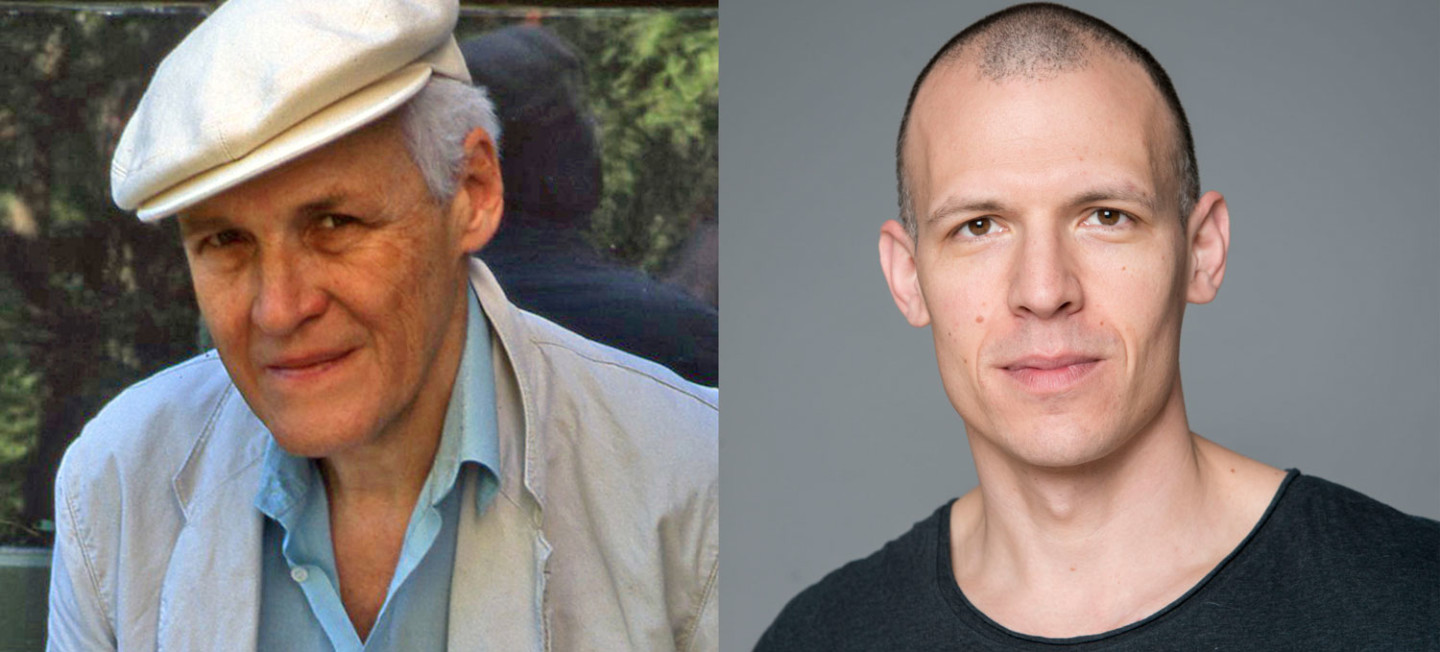
Carl-Henning Wijkmark & Hannes Meidal
Talks in the exhibition Thomas Schütte: United Enemies
Thomas Schütte (born in 1954 in Oldenburg, Germany) is one of the most seminal artists of his generation. Although he is known mainly for his sculptures, his practice spans many different media. Starting with an introduction to the exhibition Thomas Schütte: United Enemies (8 October, 2016–15 January, 2017) by its curator, Ylva Hillström, the talk will move on to various aspects of Schütte’s art, touching on poetry, drama and German history.
Carl-Henning Wijkmark (born 1934) takes inspiration from the international scene, highlighting the dark underbelly of Swedish and European culture. Wijkmark’s first published work was Jägarna på Karinhall, now considered a key work in Swedish literature, along with his volume of essays Samtiden bakom oss. In 2007, his novel Stundande natten was awarded the August prize. A large part of his novels focus on issues of human dignity, power, sexuality, death and social development. In 2014, eight of Carl-Henning Wijkmark’s novels were published in two volumes, coinciding with his 80th birthday.
Hannes Meidal graduated from the Stockholm Academy of Dramatic Arts in 2007 and belongs to the permanent ensemble of Stockholm’s Royal Dramatic Theatre. He is an actor, theatre scholar and playwright. In 2004, he published the book Keve Hjelm, Dionysos och Apollon – tankar om teater. The following year, he made his debut as a playwright at Strindbergs Intima Teater / Galeasen. He and Jen Ohlin have co-written and adapted Schiller’s The Robbers (2012), Don Giovanni (2014) and Marodörer (2015) for the Royal Dramatic Theatre. He has also recently featured in the Royal Dramatic Theatre’s productions of Diebe by Dea Loher, The Thieves, a Doll’s House, the Seagull, and Ensam och Esmeralda. Since 2013, Hannes Meidal (born 1979) is in charge of Lunchtime Poetry / Live Music at the Royal Dramatic Theatre and the poetry walks at Stockholm Literature.
Exhibition SAT at 14–14.45 (Sw)
Readings SAT at 15–15.20 Wijkmark (Sw)
Poetry walk SAT at 12–12.45 Meidal (Sw)
SUN at 12–12.45 and at 14–14.45 Meidal (Sw)
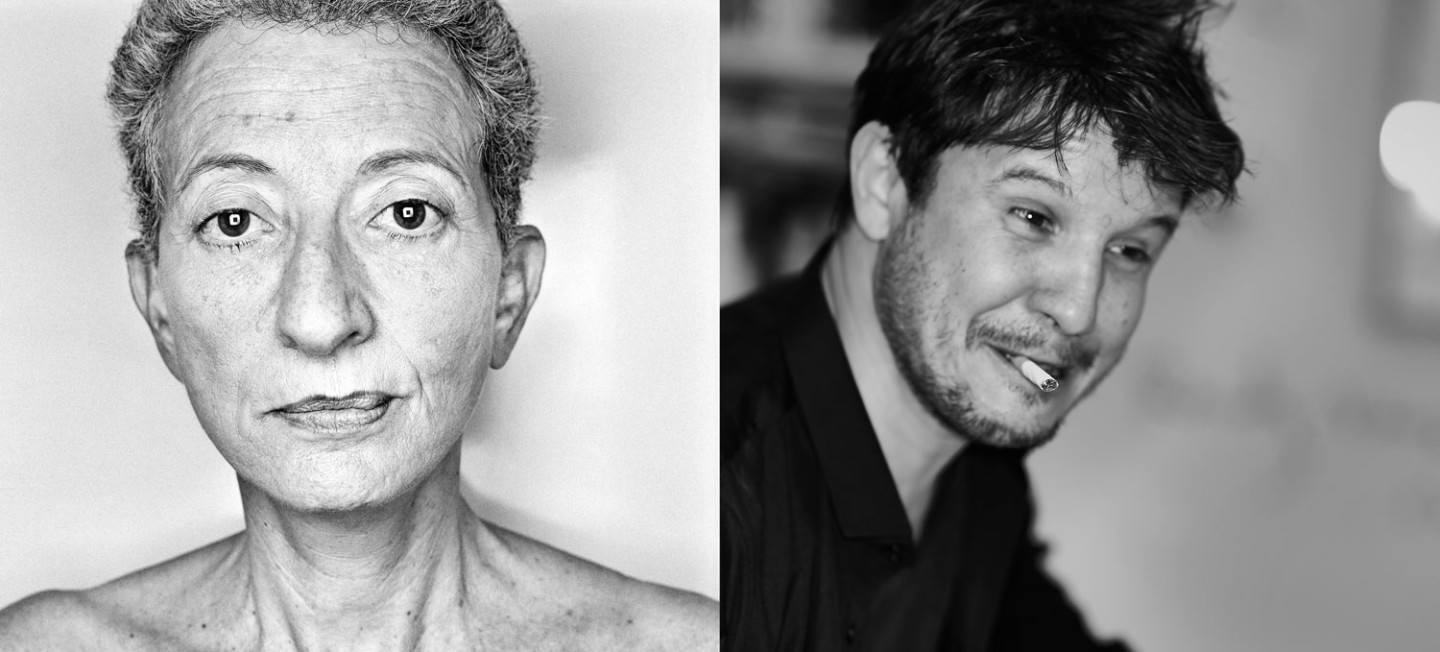
CANCELLED! Hélène Cixous & Adel Abdessemed
Can art enable liberation?
Does art have the power to loosen the rigorous norms that laws, religions and moral straightjackets have forced on society and individuals? And what price do artists have to pay for adamantly fighting against that which restricts their freedom?
Hélène Cixous is an author, playwright and internationally influential literature researcher and feminist critic, with an interdisciplinary literary practice. Born in 1937 in Oran, Algeria, in a Jewish multicultural and multilingual environment, her experience of being marginalised as a Jew and a woman have impacted on her writing. She founded Paris’ eighth university in 1969 together with Jacques Derrida and Michel Foucault, among others. In 1974, she started the world’s first centre of women’s studies there, the Centre de Recherches en Études Féminines. Her influence and reputation have grown constantly. Dedans, Le Rire de la Méduse and Portrait de Dora have been translated into Swedish by Sara Gordan and Kerstin Munck.
Adel Abdessemed is featured in the exhibition The New Human with the work God is Design (2005). In this animation, a continuous flow of black lines forms various Islamic, Jewish and Christian symbols, melding them with schematic drawings of human cells. Adel Abdessemed has felt compelled to leave societies where he experienced that his freedom was being limited. He left his native Algeria in 1994, due to the turbulent situation there. In the aftermath of 9/11 in 2001, he emigrated from the USA. Liberation, individual action and resistance to all forms of law and moral whose only purpose is to restrict our lives, are focal points in Abdessemed’s art. He was born in 1971 and currently lives and works in London.
In association with Institut Français de Suède.
The Cinema SAT at 15.30–16.15 Cixous & Abdessemed (Eng)
Readings SUN at 13.30–13.50 Cixous (Fr/Sw)
The Auditorium SUN at 15.15–16.15 Cixous & Mats Ek (Eng)
Book signing SUN at 16.20 Cixous
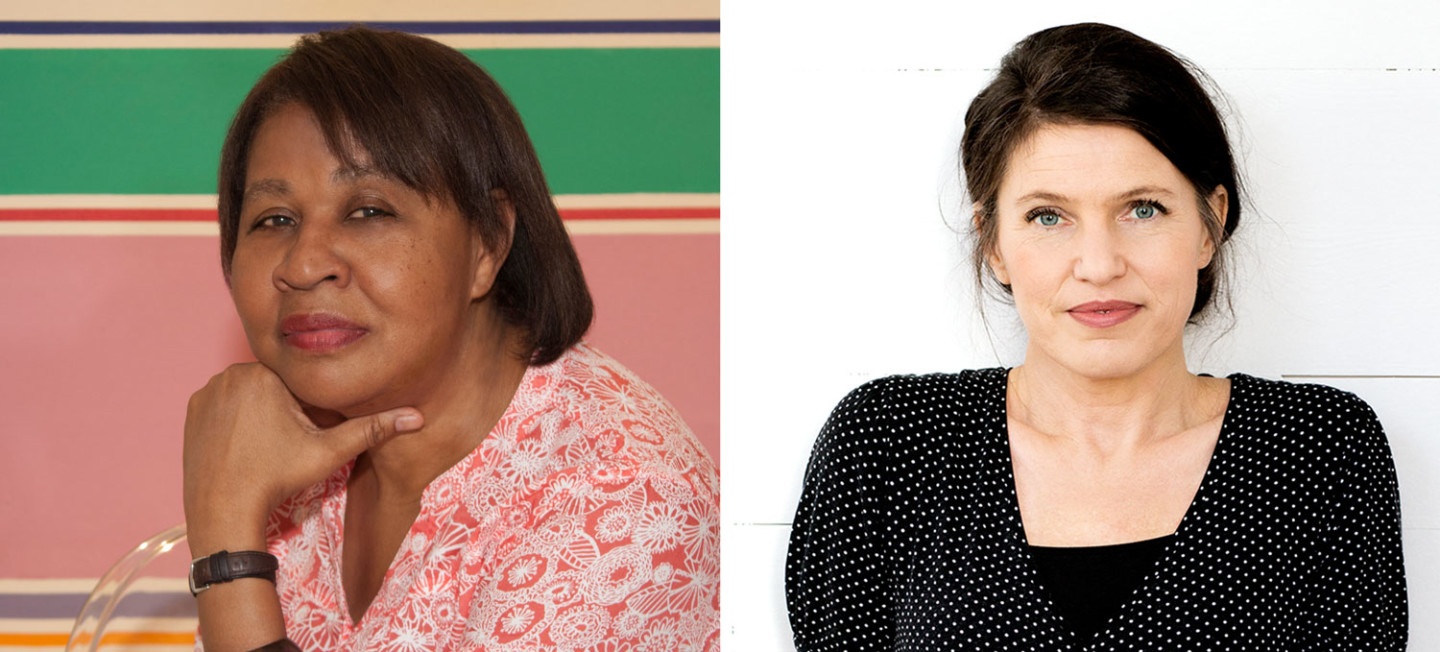
Jamaica Kincaid & Kristina Sandberg
Life on Antigua and in Örnsköldsvik
The first time Kristina Sandberg stepped into Jamaica Kincaid’s literary cosmos, it changed her perception of the world. What was it she discovered? A talk between two writers from different continents with profound similarities.
Jamaica Kincaid was born in 1949 on the Caribbean island of Antigua. At the age of 16 she was sent to the USA, where she still lives and works. In 1983, she published her first collection of short stories, At the Bottom of the River. Her recurring themes have autobiographical elements: life on her native island, the consequences of colonialism, hierarchies, mother-daughter relationships, and the situation of women in a male-dominated society. Since her debut, she has written some ten books, including novels, essays and non-fiction. Her latest novel, See Now Then, has been translated into Swedish by Niclas Nilsson.
Kristina Sandberg was born in Sundsvall in 1971 and published her first book, I vattnet flyter man, in 1997. With her trilogy about Maj, a housewife in Örnsköldsvik, she has won the hearts of her readers. Her incisive portrayal of marital angst, parenthood, cleaning and baking, with obvious parallels to our own time, won her the August prize for the third volume in the trilogy, Liv till varje pris (2014). She recently published a cookery book, I köket hos Maj. Kristina Sandberg wrote the preface to the new edition of Jamaica Kincaid’s critically acclaimed The Autobiography of My Mother, translated into Swedish by Lena Fagerström.
In association with Tranan.
The Auditorium SUN at 11.15–12 (Eng)
Book signing SUN at 12.10–12.20
Readings SUN at 15.30–15.50 Kincaid (Eng)
SUN at 15.30–15.50 Sandberg (Sw)
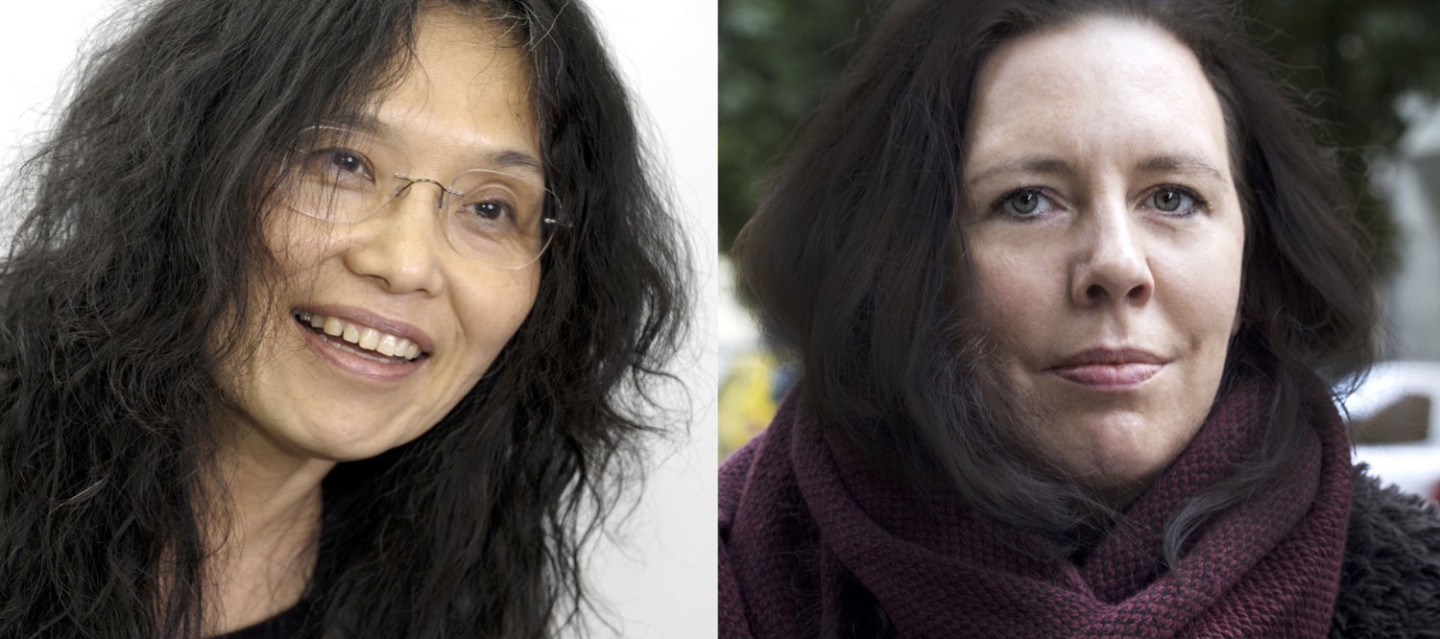
Hiromi Itō & Ulf Karl Olov Nilsson
The lyrical pharmacy
Can poetry heal wounds? Can we use poetry to write our way to liberty? And if so, how inconsiderate to others is poetry allowed to be?
Hiromi Itō is an award-winning Japanese poet, short prose writer and essayist who lives in Japan and the USA. Born in 1955, Itō published her first works in the 1980s, a series of poetry collections on the themes of pregnancy and female sexuality. In her earliest works she declared that she intended to write a powerful poem that would bear no resemblance to the prevailing stylised, artful style of Japanese poetry. Despite the modern style, she achieves a sense of mythological grandeur. It is hardly surprising that she is called “the female shaman” of Japanese poetry. Her latest poems, Wildgrass on the Riverbank, have been translated into Swedish by Lisa Pääjärvi and Johanne Lykke Holm.
Martina Montelius, born in 1975, is a Swedish author, playwright, and director. She has written three novels published at Bokförlaget Atlas: Främlingsleguanen (2013), Oscar Levertins vänner (2015), and Ibland är man lessen ibland är man glad (spring 2017). She is often described as one of Sweden’s most wayward and original writers. Her novels are characterized by a dark and hilarious humour and by uninhibited anti-heroes who try to orient themselves in these pragmatic and grey times. Martina Montelius is the artistic leader of Teater Brunnsgatan Fyra.
Martina Montelius replaces Ulf Karl Olov Nilsson.
In association with Wahlström & Widstrand.
The Auditorium SUN at 12.15–13 (Eng)
Book signing SUN at 13.10
Readings SAT at 12–12.20 Itō (Ja/Sw) SUN at 15–15.20 Ulf Karl Olov Nilsson Martina Montelius (Sw)
Zone SAT at 13–13.20 Itō (Ja)
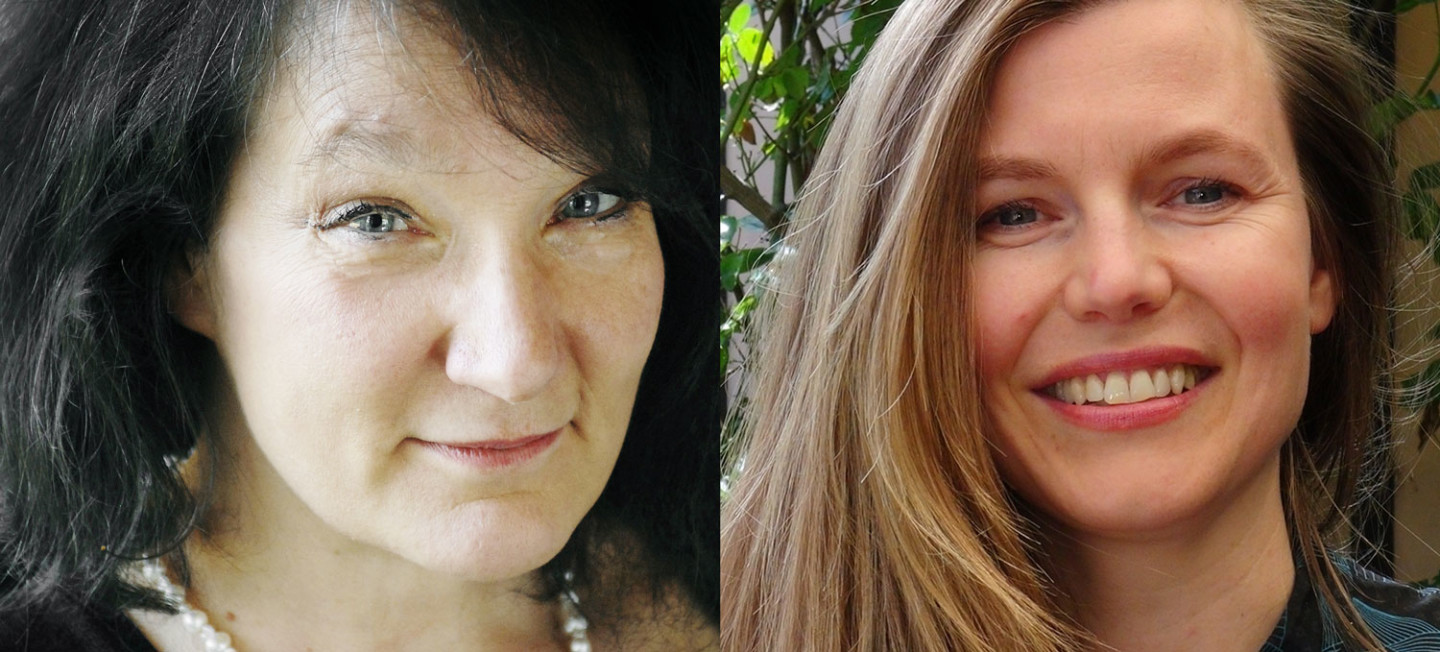
Monika Fagerholm & Astrid Svangren
The language of the senses via silk and rags
In a conversation about materiality and language, a wordsmith and a visual artist take a closer look at what is needed to understand reality. How can our relationship to different materials process our experiences of being?
Monika Fagerholm is a Swedo-Finnish writer who was born in 1961 and lives in Ekenäs, Finland. Her unique language and wild, magical characters have fascinated readers since her first novel, Underbara kvinnor vid vatten, was published in 1994. Her subsequent novels have been equally acclaimed, including Den amerikanska flickan, which was awarded the August prize in 2005. Her first published work was a series of short prose, Sham. Last spring, the Swedish Academy awarded her the Nordic Prize for 2016. In her acceptance speech she referred to the fashion designer Alexander McQueen and her own relationship to fabrics.
Astrid Svangren bases her artistic practice on painting in the expanded field that includes sensuality associated with bodies, movement and desire. She approaches her work through heterogeneous materials and how they interact: horse hair, wax, wool, shells, silk. She is in quest of a mobile imagery without hierarchies, a language that billows and flows. Born in Gothenburg in 1972, she lives and works in Copenhagen. Near the Auditorium at Moderna Museet, Astrid Svangren has installed a work made especially for Stockholm Literature.
The Auditorium SUN at 13.15–14 (Sw)
Book signing SUN at 14.10–14.20 Fagerholm
Readings SUN at 14.30–14.50 Fagerholm (Sw)

Ngũgĩ wa Thiong’o & Sjón
Stories with unexpected similarities
Meet two writers who both grew up in countries with powerful storytelling traditions. How do they relate as modern authors to these traditions? And how do they explain that the Kenyan Kikuyu legends and Icelandic sagas are so similar?
Ngũgĩ wa Thiong’o is a Kenyan writer (born 1938), who is considered one of the great African authors. His major international breakthrough came with the novel A Grain of Wheat, which is about Kenya’s long struggle for freedom. In the 1970s, he became a devout Marxist, renounced Christianity and changed his name from James Ngugi to Ngũgĩ wa Thiong’o. He was persecuted and convicted for his opinions. In prison, Ngũgĩ wa Thiong’o wrote the first novel ever in Kikuyu, Devil on the Cross, on prison toilet paper. Today, he writes only in Kikuyu. His latest book, The Upright Revolution: Or Why Humans Walk Upright, is a political fable.
Sjón ( Sigurjón Birgir Sigurðsson) is an Icelandic poet, novelist and short story writer, born in 1962. He also writes lyrics and played air guitar (!) in the legendary pop group Sugarcubes. When the group broke up, Sjón and the lead singer Björk embarked on a long-term collaboration. Sjón was nominated for an Academy Award in 2001 for his libretto for Lars von Trier’s movie, Dancer in the Dark. He was awarded the Nordic Council’s Literature Prize in 2005 for his novel Skugga-Baldur, a terse, modern saga of love and revenge. The novel also became his international breakthrough. His most recent book in Swedish is Moonstone, the Boy who Never Was, translated by John Swedenmark.
In association with Modernista, Alfabeta and the Embassy of Iceland.
The Auditorium SAT at 11.15–12 wa Thiong’o (Eng) SUN at 14.15–15 wa Thiong’o & Sjón (Eng)
Book signing SAT at 12.10 wa Thiong’o SUN at 15.10 wa Thiong’o & Sjón
Redaings SUN at 11.30–11.50 wa Thiong’o (Ki/Eng)
SUN at 13–13.20 Sjón (Ic/Sw)
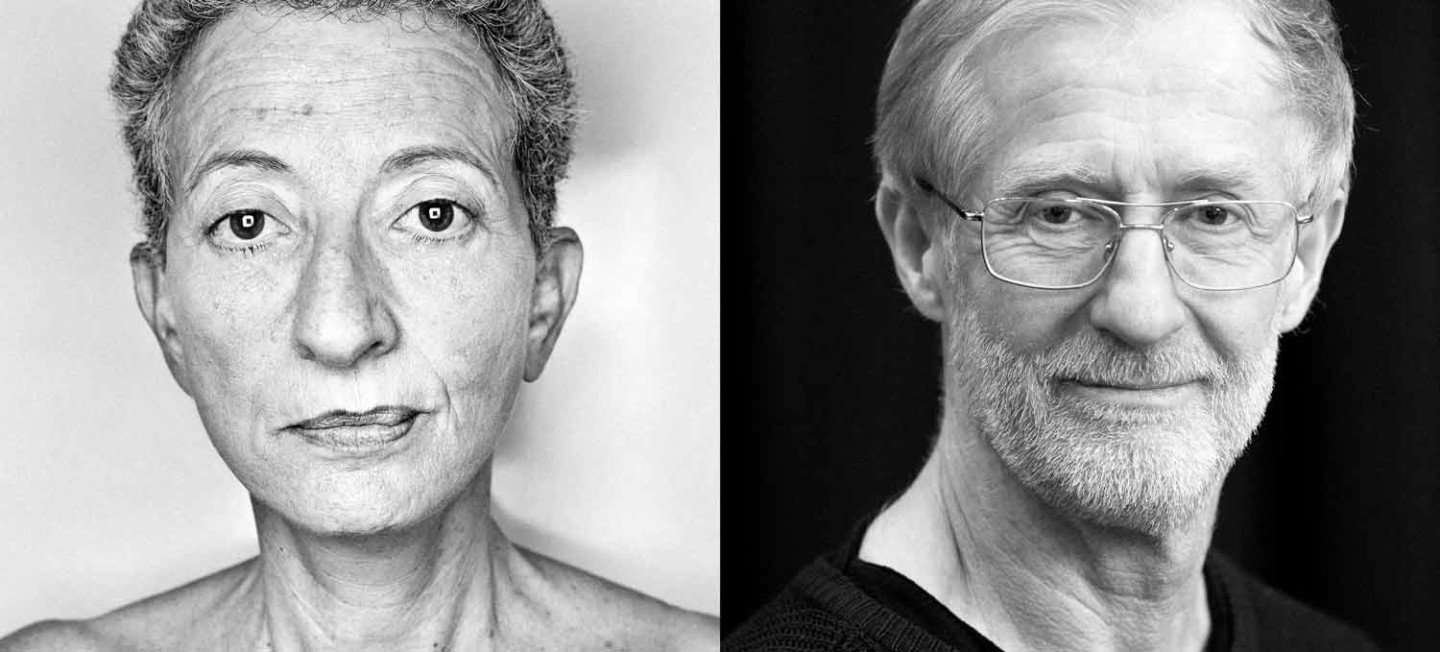
Hélène Cixous & Mats Ek
“What one can do with language is… infinite.” (H. Cixous)
A discussion about the father, the mother and the child. About memories and places. About power and the body. About dependence and liberation. About the realities of the stage. The talk starts with scenes from Portrait of Dora, with the actors Erik Ehn, Pontus Gustafsson, Rebecka Hemse and Johan Holmberg from the Royal Dramatic Theatre ensemble.
Hélène Cixous is an author, playwright and internationally influential literature researcher and feminist critic, with an interdisciplinary literary practice. Born in 1937 in Oran, Algeria, in a Jewish multicultural and multilingual environment, her experience of being marginalised as a Jew and a woman have impacted on her writing. She founded Paris’ eighth university in 1969 together with Jacques Derrida and Michel Foucault, among others. In 1974, she started the world’s first centre of women’s studies there, the Centre de Recherches en Études Féminines. Her influence and reputation have grown constantly. Dedans, Le Rire de la Méduse and Portrait de Dora have been translated into Swedish by Sara Gordan and Kerstin Munck.
Mats Ek (born 1945) is an internationally acclaimed choreographer whose interpretations of classics and his own works have been performed all over the world. Rebellion against the oppression of family and society are one of his central themes. As the artistic director of the Cullberg Ballet in 1981-1993, he produced many works belonging to the international dance repertoire, including Giselle, Swan Lake, and Carmen. After 1993, he produced several new works for, among others, the Hamburg Ballet, Nederlands Dans Theater, and the Paris Opera; most recently, he staged Juliet and Romeo for the Royal Opera in Stockholm in 2013. Ek began his career as a director at the Royal Dramatic Theatre in Stockholm and has, since his production of Don Juan in 1999, returned for a long list of acclaimed works, most recently the Ghost Sonata (2012) and The Emigrants (2014).
In association with Institut Français de Suède.
The Auditorium SUN at 15.15–16.15 (Eng)
Book signing SUN at 16.20
Readings SUN at 13.30–13.50 Cixous (Fr/Sw)
The Cinema SAT at 15.30–16.15 Cixous & Adel Abdessemed (Eng) CANCELLED!
Tickets
Tickets required for all events in the Auditorium and the opening party on Friday.
Supplementary tickets for special events SEK 35.
Opening party SEK 100
Admission free in 2016
Thanks to a contribution from the BA Danelii Foundation, the Festival card for 2016 will be free. Like before, however, supplementary tickets are required for special events.
Support Stockholm Literature
We are very grateful for all contributions towards the funding of Stockholm Literature, regardless of the amount. Please mark your contribution “Stöd till Stockholm Literature” (Contribution to Stockholm Literature). BG 115-7957

